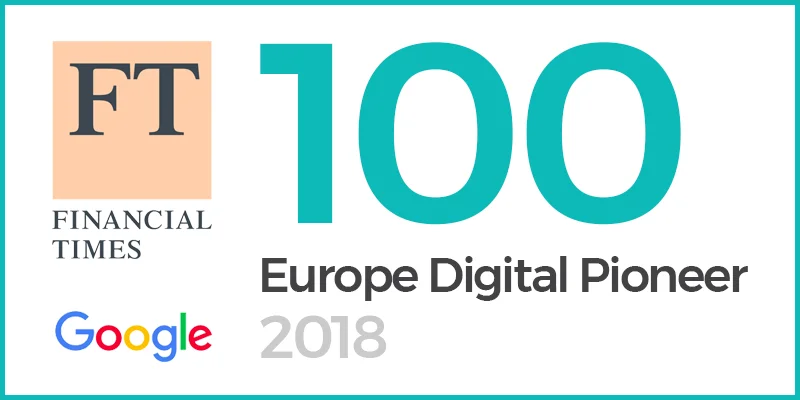MOTIONrehab named as one of Europe’s 100 Digital Pioneers
MOTIONrehab’s Intensive Neurological Rehabilitation Centre in Leeds has been recognised by the Financial Times, Google and leading European policy makers as one of the Top 100 companies for pioneering Digital Innovation in Europe.
MOTIONrehab was selected for technological innovation, its role in leading digital change, and in challenging an industry sector with a disruptive business model. MOTIONrehab has been recognised as a pioneer in the field of rehabilitation by ‘Europe’s Road to Growth list’ supported by Google and the Financial Times, which aims to highlight organisations and companies that are tackling the challenge of digitalisation and taking advantage of new technologies in ground-breaking and interesting ways.
The innovation foundation created in partnership with Google, Nesta, and The Financial Times, sought out organisations from across Europe who are demonstrating best practice in digital transformation.
On the 21st November Google and FT, are hosting a ‘Europe’s Road to Growth’ event in Brussels to celebrate with those individuals/companies who have been recognised in the report. MOTIONrehab are proud to be selected by such a prestigious field of experts and are delighted to be recognised as one of Europe’s 100 digital transformation champions.
 MOTIONrehab provides specialist neurological rehabilitation augmented by state-of-the-art robotics and virtual reality technology. It is the only centre in the UK with these specific devices, providing high intensity rehabilitation for people recovering from injuries such as a stroke, head injury, spinal cord injury and other neurological conditions. Following extensive research in the UK and overseas, centre owner and Clinical Director Sarah Daniel was keen to bring the latest technology to her clinic in Yorkshire in the North of England to complement traditional rehabilitation techniques. The centre opened in May 2018 and clients are already benefiting.
MOTIONrehab provides specialist neurological rehabilitation augmented by state-of-the-art robotics and virtual reality technology. It is the only centre in the UK with these specific devices, providing high intensity rehabilitation for people recovering from injuries such as a stroke, head injury, spinal cord injury and other neurological conditions. Following extensive research in the UK and overseas, centre owner and Clinical Director Sarah Daniel was keen to bring the latest technology to her clinic in Yorkshire in the North of England to complement traditional rehabilitation techniques. The centre opened in May 2018 and clients are already benefiting.
Clinical Director Sarah Daniel said:
“Rehabilitation is based around the ‘practice makes perfect’ adage: the more you do, the better you get. It is difficult to achieve the number of repetitions of exercise needed to rewire the nervous system with traditional approaches. MOTIONrehab therefore implemented Robotic and Virtual Reality technologies into their clinic to provide the high intensity training their clients need to optimise their outcomes from rehabilitation.”
MOTIONrehab is combining the skills and experience of its specialist neurological clinical team with the very latest VR and robotic-assisted equipment to provide bespoke, high intensity rehabilitation programmes that will give the brain a better chance of re-learning following neurological illness or injury. The outcomes so far show that rehabilitation outcomes improve significantly by implementing the Robotics and VR technology.
Clinical Director Sarah Daniel highlighted:
“Many people simply aren’t aware of how much progress it is possible to make with this ‘high repetition’ approach. We want to change that. We want to help more people access these benefits and get their lives back more quickly.”
Recognised for its digital innovation, MOTIONrehab created a robotics and VR suite, with equipment that enables patients to practise dynamic and motivating exercises to help maintain or regain balance, the ability to walk, and hand and arm movement. The MOTIONrehab centre is the first facility in the UK to offer open access to a comprehensive range of devices designed to treat all aspects of arm and leg rehabilitation, using robotics and virtual reality. The devices enable high repetition of movement and are based on gaming technology, which encourages patients to aim for higher scores to keep them motivated.
Sarah says: “Not only does this make treatment more interesting and engaging for patients, but integrating these devices with traditional therapy means that people at any stage of their rehabilitation, and with any level of disability, can participate in motivating and challenging therapy. People want to get well, and they want to get their lives back. High intensity rehabilitation has a crucial role to play, and our new technology makes it available and accessible.”





Recent Comments